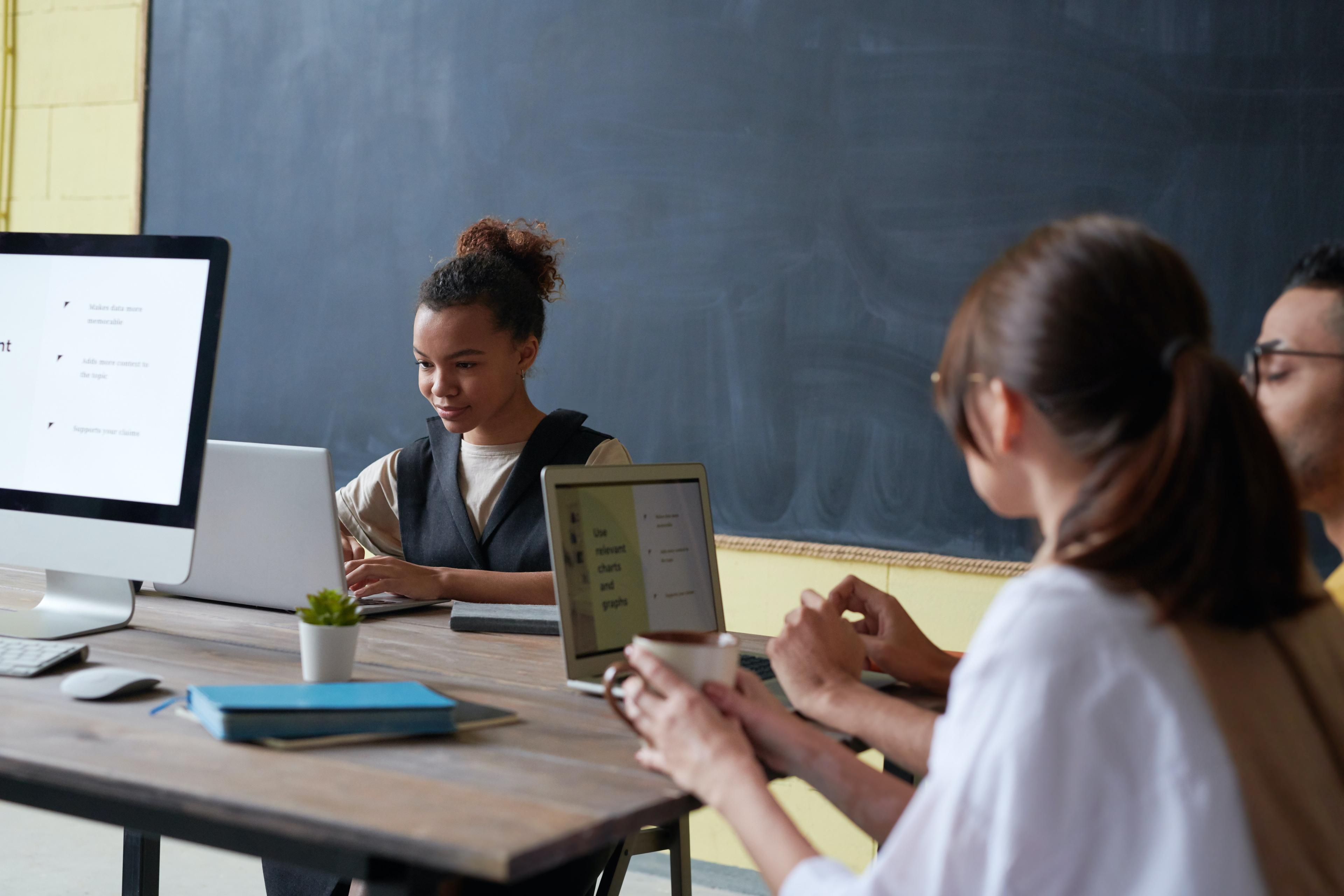
Table of Contents
Being an undergraduate student can be challenging, especially when it comes to attending lectures and participating in class discussions. However, lectures and class discussions are an integral part of the learning process, and they provide students with an opportunity to gain knowledge, clarify doubts, and cultivate critical thinking skills. In this article, we will discuss the strategies and tips that can help you make the most of your undergraduate lectures and class discussions.
The Importance of Active Listening in Undergrad Lectures
Active listening is a crucial skill that you must develop to make the most of your undergraduate lectures. When you listen actively, you pay attention to the speaker, interpret the message, and provide feedback. To listen actively, sit in the front row, avoid distractions, take notes, and ask questions. Also, keep an open mind, avoid interrupting the speaker, and don't assume you know what the speaker is going to say.
Active listening not only helps you understand the lecture material better, but it also shows respect to the speaker. When you actively listen, you demonstrate that you value the speaker's time and effort in preparing the lecture. Additionally, active listening can improve your relationships with your professors and peers. By asking thoughtful questions and engaging in discussions, you can build connections and establish yourself as a dedicated and curious student.
Moreover, active listening is a transferable skill that can benefit you in various aspects of your life. Whether you are in a job interview, a meeting, or a personal conversation, active listening can help you communicate effectively, build rapport, and avoid misunderstandings. Therefore, investing time and effort in developing your active listening skills can pay off in the long run, both academically and professionally.
Strategies for Effective Note-Taking During Class Discussions
Note-taking is a valuable skill that can help you remember details and better understand the lecture material. To take effective notes, use a clear format, abbreviate words, write down key points, and review your notes after class. Avoid writing down everything that the speaker says, and instead try to summarize essential points and ideas.
Another useful strategy for effective note-taking during class discussions is to actively listen to the speaker and engage in the discussion. This means paying attention to the speaker's tone, body language, and emphasis on certain points. Additionally, asking questions and participating in the discussion can help you better understand the material and remember important details. Remember to also take breaks if you feel overwhelmed or need to refocus your attention.
How to Prepare for Lectures and Discussions Ahead of Time
Preparing for your lectures and discussions ahead of time can help you make the most of your time in class. To prepare effectively, review the course material, read the assigned chapters, and write down questions you have about the material. Also, think critically about the topic and consider how it relates to other concepts you have learned in your course.
Another way to prepare for lectures and discussions is to participate in online forums or discussion boards related to the course. This can help you gain a deeper understanding of the material and engage with other students who may have different perspectives on the topic.
Additionally, it can be helpful to create a study group with classmates to review the material together and discuss any questions or concerns. This can also provide a supportive environment for learning and help you stay motivated throughout the course.
Participating in Class Discussions: Tips for Making Your Voice Heard
Participating in class discussions is a great way to engage with the course material, clarify any doubts, and improve your critical thinking skills. To participate effectively, listen to the speaker, wait for your turn to speak, be concise, and provide evidence to support your arguments. Also, respect other students' opinions, avoid interrupting, and ask follow-up questions to clarify the speaker's point.
Another important tip for participating in class discussions is to come prepared. This means doing the assigned readings or homework beforehand, so that you have a good understanding of the topic being discussed. It also means taking notes during the discussion, so that you can refer back to them later and remember important points.
Finally, don't be afraid to ask for clarification if you don't understand something. It's better to ask a question and get a clear answer, than to stay silent and miss out on important information. Remember, class discussions are a collaborative effort, and everyone benefits when everyone participates.
Cultivating Critical Thinking Skills through Undergrad Lectures and Discussions
Undergrad lectures and class discussions can be an excellent opportunity for students to cultivate critical thinking skills. To think critically, you need to analyze, synthesize, and evaluate information. This involves questioning sources, considering alternative perspectives, and making logical connections between ideas. To cultivate critical thinking, ask yourself questions, practice active listening, and participate in class discussions.
Another way to cultivate critical thinking skills is to engage in debates and argumentation. This involves presenting and defending your own ideas while also considering and responding to opposing viewpoints. By engaging in debates, you can learn to think on your feet, develop persuasive communication skills, and gain a deeper understanding of complex issues.
Additionally, seeking out diverse perspectives and experiences can also help to cultivate critical thinking skills. This can involve reading books and articles from a variety of authors, attending lectures and events on different topics, and engaging with people from different backgrounds and cultures. By exposing yourself to different viewpoints and experiences, you can broaden your understanding of the world and develop a more nuanced and critical perspective.
Maximizing Learning Opportunities outside of the Classroom Setting
Your learning experience does not end when you leave the classroom. To maximize your learning opportunities, read supplemental materials, engage in extracurricular activities related to your interests, and attend academic events. Seek out online resources related to your course material, and review previous lectures and class discussions to reinforce your understanding.
How Technology Can Enhance Your Learning Experience in Undergrad Lectures
Technology can be a valuable tool to enhance your learning experience in undergrad lectures and class discussions. You can use recording devices to capture lectures or discussions, and online tools to collaborate with peers and access study materials. Use technology wisely to supplement your learning experience, and avoid distractions that hinder your academic progress.
Overcoming Common Challenges Faced During Undergrad Lectures and Discussions
Undergrad lectures and discussions can pose several challenges for students, including distractions, boredom, and anxiety. To overcome common challenges, try to identify the root cause of the problem, and develop a coping mechanism. For example, if you struggle with boredom, try to make the lecture or discussion more engaging by taking notes, asking questions, and participating in discussions.
The Role of Collaboration in Undergrad Lectures and Group Discussions
Collaboration plays a vital role in undergrad lectures and group discussions. Through collaboration with your peers, you can gain new perspectives, share knowledge, and improve your critical thinking skills. To collaborate effectively, respect your peers' opinions, communicate clearly, and maintain an open mind.
Building Strong Relationships with Professors and Peers through Active Participation
Active participation in undergrad lectures and class discussions can help you build strong relationships with professors and peers. To build strong relationships, participate in class discussions, ask questions, and seek feedback from your professors. Also, get to know your peers and try to work on group projects together.
Preparing for Exams by Reviewing Lecture Notes and Class Discussion Materials
Reviewing your lecture notes and class discussion materials is an effective way to prepare for exams. Reviewing your notes can help you remember critical details, identify patterns and themes, and develop study strategies. Also, create a study group with your peers and discuss the lecture material together.
Staying Engaged and Motivated Throughout the Semester
Staying engaged and motivated throughout the semester can be challenging, but it is essential to achieving academic success. One way to stay motivated is to set realistic goals, create a study schedule, and reward yourself for reaching milestones. Also, find ways to make the lecture material more engaging, such as taking field trips, doing research, or attending seminars related to the course material.
Balancing Lecture Workload with Other Academic Demands
Undergrad lectures and class discussions can be time-consuming, and it can be challenging to balance the workload with other academic demands. To manage your time effectively, prioritize your tasks, create a study schedule, and use time management tools. Also, communicate with your professors and peers, and seek support when needed.
Setting Realistic Goals to Achieve Success in Undergrad Lectures and Class Discussions
Setting realistic goals can provide you with a clear roadmap for academic success. To set realistic goals, identify your strengths and weaknesses, and develop a strategy to improve your weak areas. Also, create a plan to achieve your goals, and keep track of your progress regularly. Celebrate your achievements and learn from your setbacks.
In conclusion, undergrad lectures and class discussions are essential components of the learning process. To make the most of your undergraduate lectures and discussions, develop active listening skills, take effective notes, collaborate with peers, cultivate critical thinking skills, and stay motivated. Follow these tips and strategies and be committed to learning, and you will undoubtedly achieve academic success.












